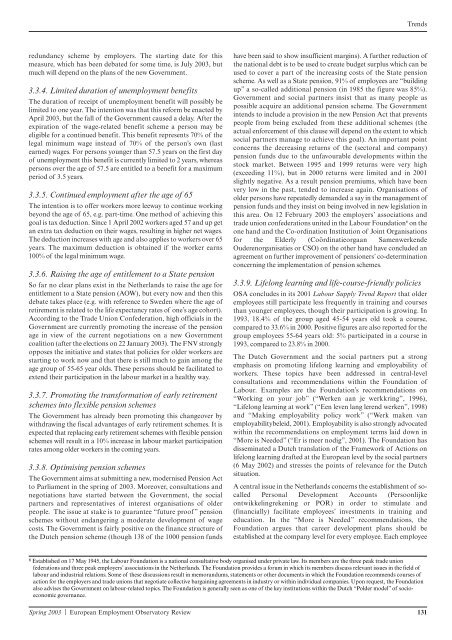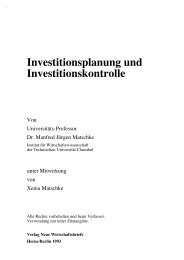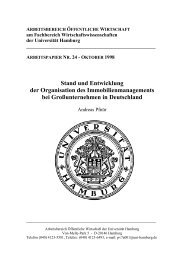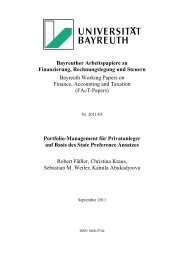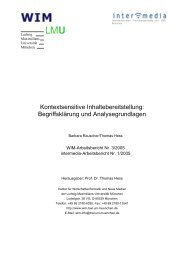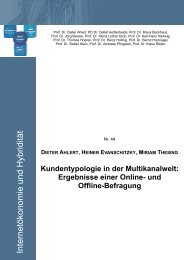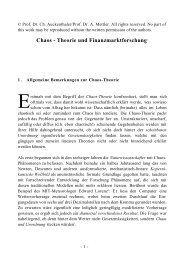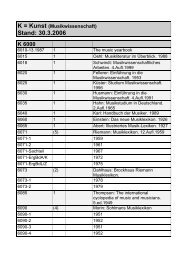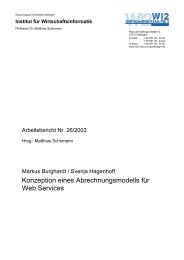FRANCE The
FRANCE The
FRANCE The
Create successful ePaper yourself
Turn your PDF publications into a flip-book with our unique Google optimized e-Paper software.
edundancy scheme by employers. <strong>The</strong> starting date for this<br />
measure, which has been debated for some time, is July 2003, but<br />
much will depend on the plans of the new Government.<br />
3.3.4. Limited duration of unemployment benefits<br />
<strong>The</strong> duration of receipt of unemployment benefit will possibly be<br />
limited to one year. <strong>The</strong> intention was that this reform be enacted by<br />
April 2003, but the fall of the Government caused a delay. After the<br />
expiration of the wage-related benefit scheme a person may be<br />
eligible for a continued benefit. This benefit represents 70% of the<br />
legal minimum wage instead of 70% of the person’s own (last<br />
earned) wages. For persons younger than 57.5 years on the first day<br />
of unemployment this benefit is currently limited to 2 years, whereas<br />
persons over the age of 57.5 are entitled to a benefit for a maximum<br />
period of 3.5 years.<br />
3.3.5. Continued employment after the age of 65<br />
<strong>The</strong> intention is to offer workers more leeway to continue working<br />
beyond the age of 65, e.g. part-time. One method of achieving this<br />
goal is tax deduction. Since 1 April 2002 workers aged 57 and up get<br />
an extra tax deduction on their wages, resulting in higher net wages.<br />
<strong>The</strong> deduction increases with age and also applies to workers over 65<br />
years. <strong>The</strong> maximum deduction is obtained if the worker earns<br />
100% of the legal minimum wage.<br />
3.3.6. Raising the age of entitlement to a State pension<br />
So far no clear plans exist in the Netherlands to raise the age for<br />
entitlement to a State pension (AOW), but every now and then this<br />
debate takes place (e.g. with reference to Sweden where the age of<br />
retirement is related to the life expectancy rates of one’s age cohort).<br />
According to the Trade Union Confederation, high officials in the<br />
Government are currently promoting the increase of the pension<br />
age in view of the current negotiations on a new Government<br />
coalition (after the elections on 22 January 2003). <strong>The</strong> FNV strongly<br />
opposes the initiative and states that policies for older workers are<br />
starting to work now and that there is still much to gain among the<br />
age group of 55-65 year olds. <strong>The</strong>se persons should be facilitated to<br />
extend their participation in the labour market in a healthy way.<br />
3.3.7. Promoting the transformation of early retirement<br />
schemes into flexible pension schemes<br />
<strong>The</strong> Government has already been promoting this changeover by<br />
withdrawing the fiscal advantages of early retirement schemes. It is<br />
expected that replacing early retirement schemes with flexible pension<br />
schemes will result in a 10% increase in labour market participation<br />
rates among older workers in the coming years.<br />
3.3.8. Optimising pension schemes<br />
<strong>The</strong> Government aims at submitting a new, modernised Pension Act<br />
to Parliament in the spring of 2003. Moreover, consultations and<br />
negotiations have started between the Government, the social<br />
partners and representatives of interest organisations of older<br />
people. <strong>The</strong> issue at stake is to guarantee “future proof” pension<br />
schemes without endangering a moderate development of wage<br />
costs. <strong>The</strong> Government is fairly positive on the finance structure of<br />
the Dutch pension scheme (though 138 of the 1000 pension funds<br />
Spring 2003 | European Employment Observatory Review 131<br />
Trends<br />
have been said to show insufficient margins). A further reduction of<br />
the national debt is to be used to create budget surplus which can be<br />
used to cover a part of the increasing costs of the State pension<br />
scheme. As well as a State pension, 91% of employees are “building<br />
up” a so-called additional pension (in 1985 the figure was 85%).<br />
Government and social partners insist that as many people as<br />
possible acquire an additional pension scheme. <strong>The</strong> Government<br />
intends to include a provision in the new Pension Act that prevents<br />
people from being excluded from these additional schemes (the<br />
actual enforcement of this clause will depend on the extent to which<br />
social partners manage to achieve this goal). An important point<br />
concerns the decreasing returns of the (sectoral and company)<br />
pension funds due to the unfavourable developments within the<br />
stock market. Between 1995 and 1999 returns were very high<br />
(exceeding 11%), but in 2000 returns were limited and in 2001<br />
slightly negative. As a result pension premiums, which have been<br />
very low in the past, tended to increase again. Organisations of<br />
older persons have repeatedly demanded a say in the management of<br />
pension funds and they insist on being involved in new legislation in<br />
this area. On 12 February 2003 the employers’ associations and<br />
trade union confederations united in the Labour Foundation 6 on the<br />
one hand and the Co-ordination Institution of Joint Organisations<br />
for the Elderly (Coördinatieorgaan Samenwerkende<br />
Ouderenorganisaties or CSO) on the other hand have concluded an<br />
agreement on further improvement of pensioners’ co-determination<br />
concerning the implementation of pension schemes.<br />
3.3.9. Lifelong learning and life-course-friendly policies<br />
OSA concludes in its 2001 Labour Supply Trend Report that older<br />
employees still participate less frequently in training and courses<br />
than younger employees, though their participation is growing. In<br />
1993, 18.4% of the group aged 45-54 years old took a course,<br />
compared to 33.6% in 2000. Positive figures are also reported for the<br />
group employees 55-64 years old: 5% participated in a course in<br />
1993, compared to 23.8% in 2000.<br />
<strong>The</strong> Dutch Government and the social partners put a strong<br />
emphasis on promoting lifelong learning and employability of<br />
workers. <strong>The</strong>se topics have been addressed in central-level<br />
consultations and recommendations within the Foundation of<br />
Labour. Examples are the Foundation’s recommendations on<br />
“Working on your job” (“Werken aan je werkkring”, 1996),<br />
“Lifelong learning at work” (“Een leven lang lerend werken”, 1998)<br />
and “Making employability policy work” (“Werk maken van<br />
employabilitybeleid, 2001). Employability is also strongly advocated<br />
within the recommendations on employment terms laid down in<br />
“More is Needed” (“Er is meer nodig”, 2001). <strong>The</strong> Foundation has<br />
disseminated a Dutch translation of the Framework of Actions on<br />
lifelong learning drafted at the European level by the social partners<br />
(6 May 2002) and stresses the points of relevance for the Dutch<br />
situation.<br />
A central issue in the Netherlands concerns the establishment of socalled<br />
Personal Development Accounts (Persoonlijke<br />
ontwikkelingrekening or POR) in order to stimulate and<br />
(financially) facilitate employees’ investments in training and<br />
education. In the “More is Needed” recommendations, the<br />
Foundation argues that career development plans should be<br />
established at the company level for every employee. Each employee<br />
6 Established on 17 May 1945, the Labour Foundation is a national consultative body organised under private law. Its members are the three peak trade union<br />
federations and three peak employers’ associations in the Netherlands. <strong>The</strong> Foundation provides a forum in which its members discuss relevant issues in the field of<br />
labour and industrial relations. Some of these discussions result in memorandums, statements or other documents in which the Foundation recommends courses of<br />
action for the employers and trade unions that negotiate collective bargaining agreements in industry or within individual companies. Upon request, the Foundation<br />
also advises the Government on labour-related topics. <strong>The</strong> Foundation is generally seen as one of the key institutions within the Dutch “Polder model” of socioeconomic<br />
governance.


